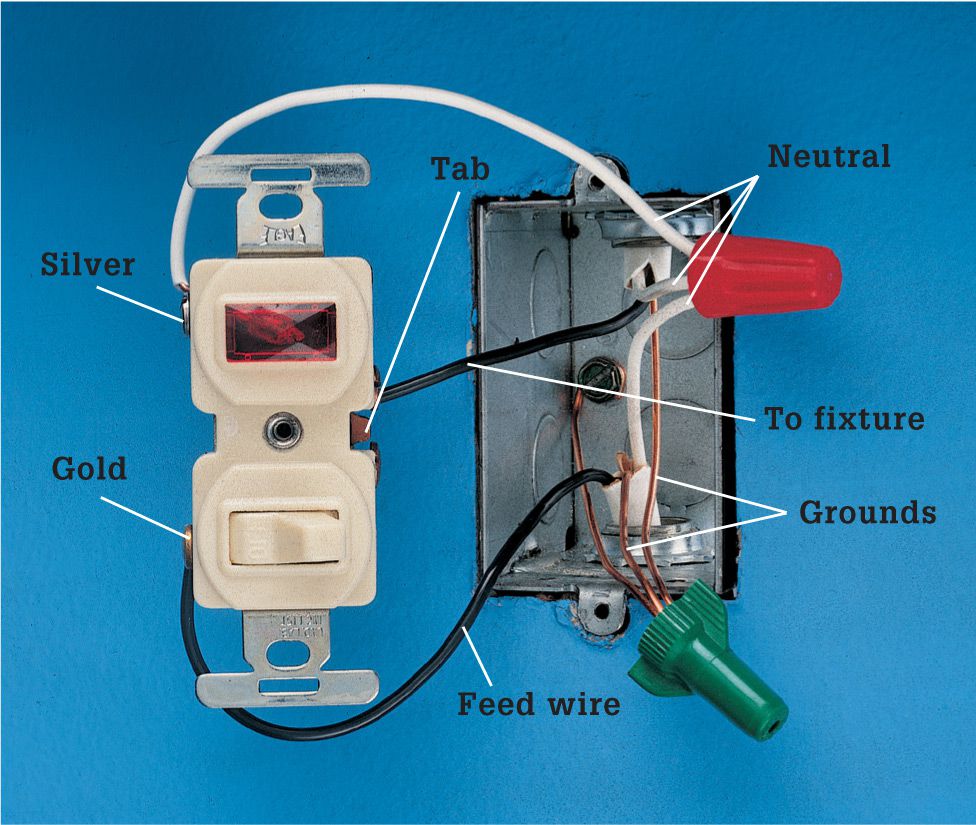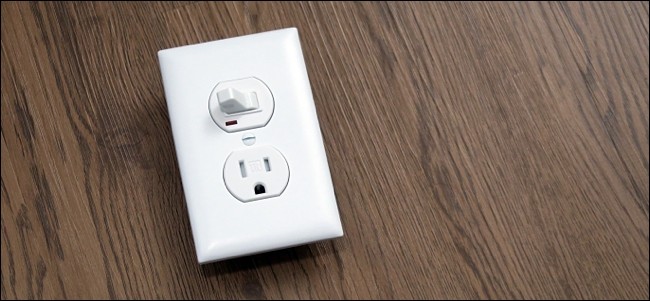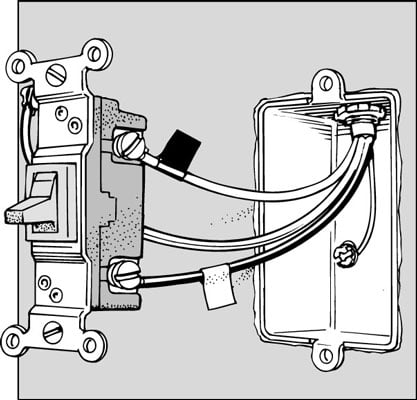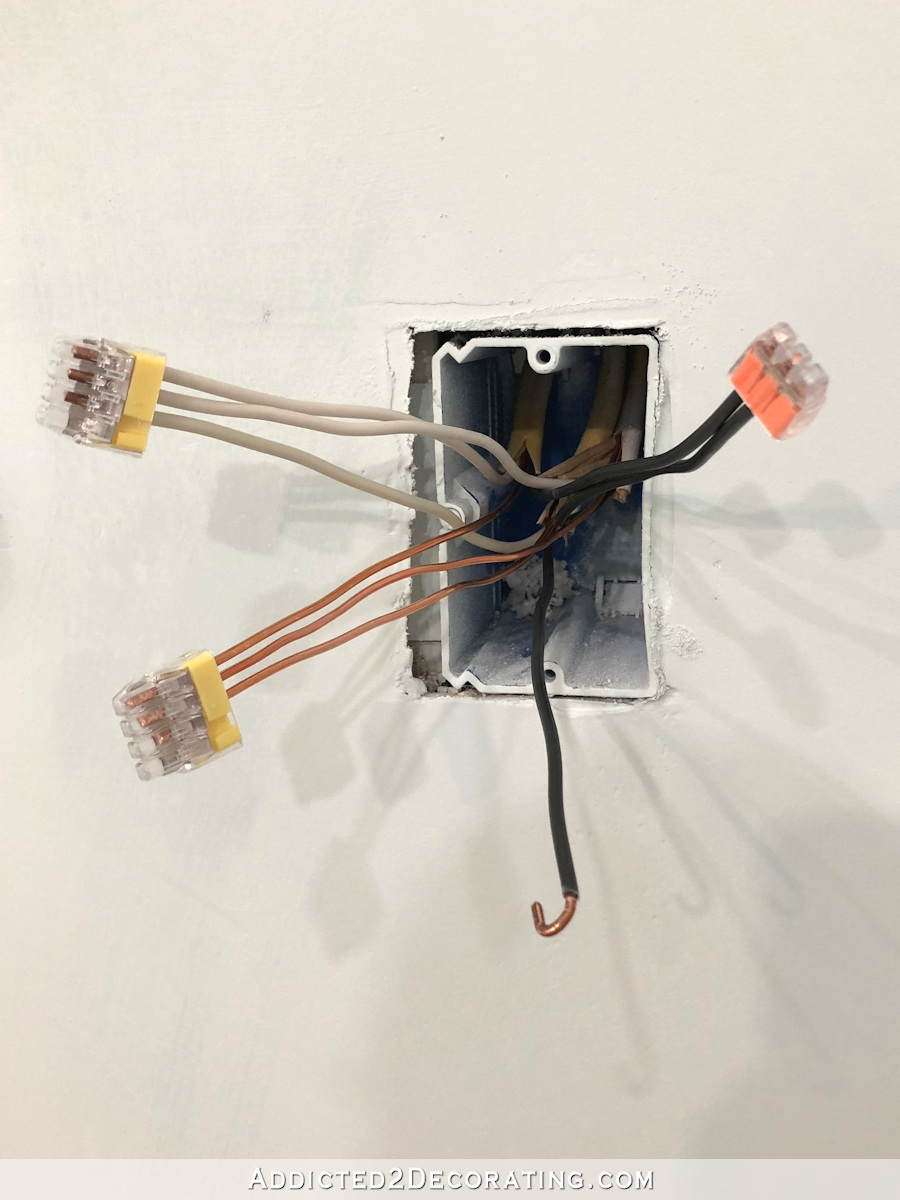If the switch that was there is a standard light switch with two brass screws on it and one green screw you can connect the red wire to either of the brass screws. Grounding screws on switches were not always required so if you are replacing an old three way switch you may find one without the grounding screw.
:max_bytes(150000):strip_icc()/anatomy-of-a-three-way-switch-1152436-final-ddc55160d5cb47929688406fda972301.png)
Understanding Three Way Wall Switches
Green screw on light switch. The green or bare copper ground wire if the device has one attaches to the green screw terminal on the switch or to the electrical box. Connect the black wire to the other brass screw. And as with the previous switch the two traveler wires will connect to the two brass screws again in no particular order. While standard single pole switches have two screw terminals on one side of the switch plus a third green grounding screw terminal connected to the metal strap three way switches have three screw terminals plus a ground screw. This green wire is the ground wire and if it is present there will be no ground screw. If you have a ground wire connect the ground wire to the green screw.
To replace this kind of switch follow these steps. This wiring setup uses the two traveler wires to allow for either light switch to control the light fixture. The brass screw is the traveler wire connections. Of course there are always exceptions to the rule and there are many legitimate and not so legitimate ways to wire devices that dont follow the basic color coding so never make assumptions based on color coding alone. A three way switch has two brass screws a darker colored screw and a green screw. The green screw attached to the metal strap of the switch is always for the ground wire this is the bare copper or green insulated wire within the circuit.
This is seen in some cables made in the 1960s and 1970s but is not generally seen in modern pvc cables. Locate the green ground screw that will either be on the light fixture itself or on the mounting bracket used to hang the light fixture. If the switch has on and off embossed on its body and its the only switch that controls lights or receptacles its a single pole switch. Green gunge sometimes called green goo is sometimes seen exuding from the ends of some older pvc insulated and sheathed cable. Its origin is the plasticiser used to provide flexibility in the pvc polymer compound. A green or bare ground wire almost always makes a ground connectionto a ground screw on a device electrical box or appliance case or to a green wire lead.
One of the screw terminals is a darker color than the other two terminals. Step 4 loosen the screws holding the terminal wires in place. The green screw is for the ground connection. The darker terminal is known as the common connection of the switch. Sometimes the light fixture will have a green wire coming from it. On the other switch the hot wire that continues on to the light fixture attaches to the common screw.
The darker colored screw is for either the hot wire or the switch leg. You should also see a green wire called a ground wire which attaches to a screw on the lower left side of the light switch.
/threeway-5c1c0f7746e0fb00015051d8.jpg)

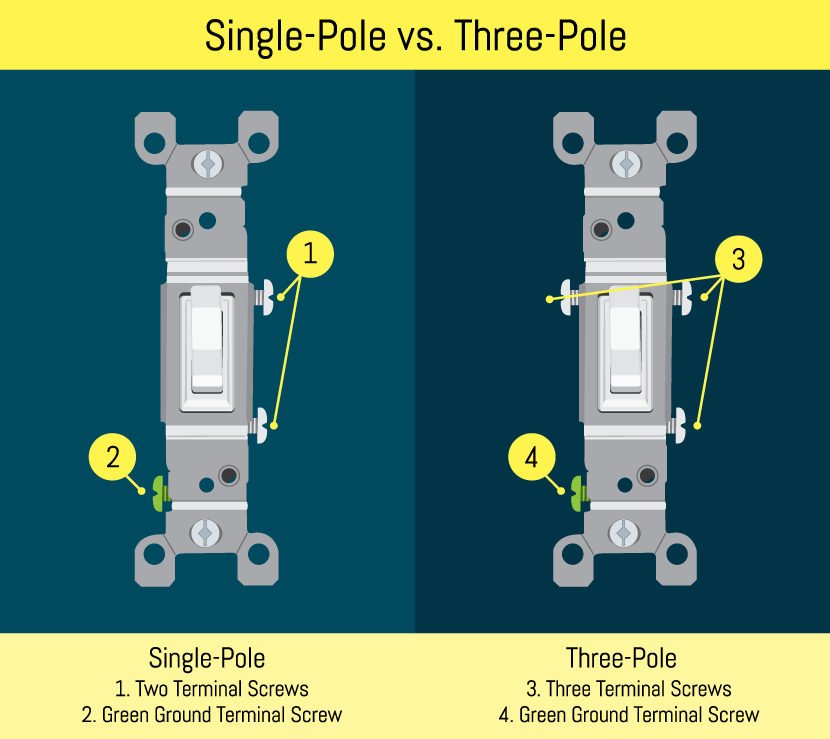

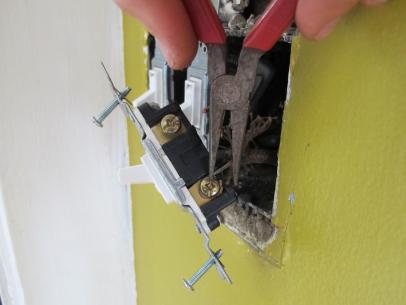


/Single-pole-Switch-wiring-5a29a4a85b6e240037a267fc.jpg)



